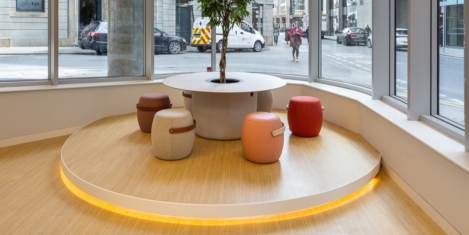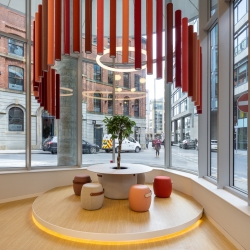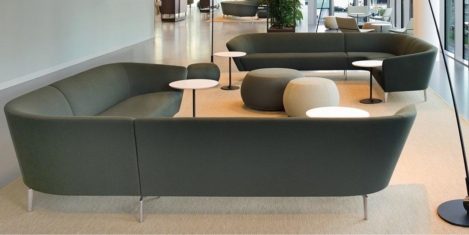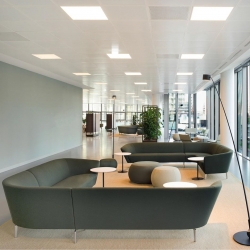To provide the best experiences, we use technologies like cookies to store and/or access device information. Consenting to these technologies will allow us to process data such as browsing behaviour or unique IDs on this site. Not consenting or withdrawing consent, may adversely affect certain features and functions.
The technical storage or access is strictly necessary for the legitimate purpose of enabling the use of a specific service explicitly requested by the subscriber or user, or for the sole purpose of carrying out the transmission of a communication over an electronic communications network.
The technical storage or access is necessary for the legitimate purpose of storing preferences that are not requested by the subscriber or user.
The technical storage or access that is used exclusively for statistical purposes.
The technical storage or access that is used exclusively for anonymous statistical purposes. Without a subpoena, voluntary compliance on the part of your Internet Service Provider, or additional records from a third party, information stored or retrieved for this purpose alone cannot usually be used to identify you.
The technical storage or access is required to create user profiles to send advertising, or to track the user on a website or across several websites for similar marketing purposes.
 Four out of five (81 percent) business leaders in the UK say Generative AI will benefit their employees, according to new research from LinkedIn. The top ways that UK executives believe Generative AI will benefit employees is by removing boring, repetitive tasks (64 percent), increasing productivity (52 percent) and freeing up time for bigger and more creative thinking (59 percent), according to the poll. One in three (31 percent) also believe that the rise of Generative AI will create brand new roles at their organisation. More →
Four out of five (81 percent) business leaders in the UK say Generative AI will benefit their employees, according to new research from LinkedIn. The top ways that UK executives believe Generative AI will benefit employees is by removing boring, repetitive tasks (64 percent), increasing productivity (52 percent) and freeing up time for bigger and more creative thinking (59 percent), according to the poll. One in three (31 percent) also believe that the rise of Generative AI will create brand new roles at their organisation. More →






 Way before the lockdown rewired the whole events scene in cities around the world, I was given a task by an old, now departed, friend. He wanted to explore the possibility of creating something like Clerkenwell Design Week in Manchester. The obvious problem was that, for some of its historic parallels, Manchester isn’t Clerkenwell and it certainly isn’t London. What it particularly lacked for this type of event was a hothouse of office design showrooms sharing space with a youthful community of architects and designers. The ecosystem for such an event didn’t really exist in the same way.
Way before the lockdown rewired the whole events scene in cities around the world, I was given a task by an old, now departed, friend. He wanted to explore the possibility of creating something like Clerkenwell Design Week in Manchester. The obvious problem was that, for some of its historic parallels, Manchester isn’t Clerkenwell and it certainly isn’t London. What it particularly lacked for this type of event was a hothouse of office design showrooms sharing space with a youthful community of architects and designers. The ecosystem for such an event didn’t really exist in the same way. 
 Mark Eltringham is joined for a glass of red wine (or two) by Esme Banks-Marr of BVN architects and Jo Sutherland of Magenta. They discuss the joys of shared space, when people should tell AI to FO, the limits of workplace design, how to create a great culture wherever people work and much more.
Mark Eltringham is joined for a glass of red wine (or two) by Esme Banks-Marr of BVN architects and Jo Sutherland of Magenta. They discuss the joys of shared space, when people should tell AI to FO, the limits of workplace design, how to create a great culture wherever people work and much more. 








 And No One Shouted Stop! seems to me to be an apt phrase to capture these post- pandemic times as we grapple with work and workplace dilemmas. It comes from the little-known but widely acclaimed
And No One Shouted Stop! seems to me to be an apt phrase to capture these post- pandemic times as we grapple with work and workplace dilemmas. It comes from the little-known but widely acclaimed 















November 20, 2023
Oscillate wildly between the death of the office and the death of hybrid working
by Mark Eltringham • Comment, Flexible working